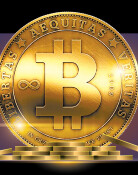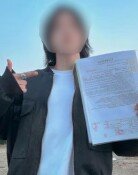U.S. should implement ‘secondary boycott’ for North's funding sources
U.S. should implement ‘secondary boycott’ for North's funding sources
Posted September. 15, 2017 07:46,
Updated September. 15, 2017 08:04
U.S. Treasury Secretary Steven Mnuchin said Wednesday that the White House will not hesitate to impose economic sanctions against China if Beijing refuses to join international sanctions against North Korea. “If China doesn’t follow these sanctions, we will put additional sanctions on them and prevent them from accessing the US international dollar system,” he said. “I've worked on an executive order that's ready if the president wants to use it." A day earlier, a spokesperson for the U.S. Department of State said that Washington would do more to tighten up Kim Jong Un’s financial sources. As the United Nations Security Council’s new sanctions fail to cut off oil supplies to North Korea, the United States seems to be seeking independent financial sanctions against the North.
On the same day, the U.S. House Financial Services Committee discussed measures to put China’s 12 largest banks under sanctions modeled after those on Banco Delta Asia (BDA), a Macao-based bank that the U.S. Treasury Department blacklisted in 2005 for North Korea’s money laundering. At the time of the BDA sanctions, which froze some 25 million dollars of the then North Korean leader Kim Jong Il’s money, then North Korea’s Vice Foreign Minister Kim Kye Kwan returned to the negotiating table, saying he felt as if his “blood was frozen.”
The United States is reportedly completing its investigation of illegal transactions by some 100 Chinese financial institutions and corporations with North Korea. If Washington actually imposes sanctions on them, there will likely be a trade and financial war between the U.S. and China, unlike at the time of the BDA sanctions. Such concerns have prevented Washington from playing the card of “secondary boycott.” Nevertheless, the fact that the administration and Congress had one voice indicates Washington’s commitment to imposing North Korea sanctions.
Financial sanctions that tightened up Kim Jong Un’s financial sources could sever the Achilles tendon of North Korea in that they would block funding for Pyongyang’s nuclear development program. The international community should also consider the Iran model, in which it levied fines worth 12 billion dollars on four major Chinese banks involved in Iran’s money laundering.
As the U.N. Security Council’s new sanctions fall short of shackling North Korea, Pyongyang would be able to get closer to completing its nuclear technology. On Wednesday, North Korea argued that the sanctions were “worse than rotten nets” and all it had to depend was to develop nuclear might. The South Korean military has detected signs of North Korea’s intercontinental ballistic missile provocation. There are also reports that the North is close to completing a new submarine equipped with two to three launchers of submarine launched ballistic missiles.
Still, South Korea’s Unification Ministry said Thursday that it is considering providing 8 million U.S. dollars in aid to North Korea via international organizations for assistance to infants and pregnant women in North Korea. No matter how humanitarian the aid would be, it could not be provided without taking political situations in consideration. The move could give a wrong signal to the international community just two after the U.N. Security Council adopted a sanctions resolution against Pyongyang. South Korean President Moon Jae-in, who will attend a U.N. General Assembly meeting in New York next week, should keep pace with pressures on the North with the U.S. and Japan. Putting pressures on the North by establishing a solid cooperative system with Washington and Tokyo would enhance Seoul’s voice in addressing the North Korean nuclear issue.







